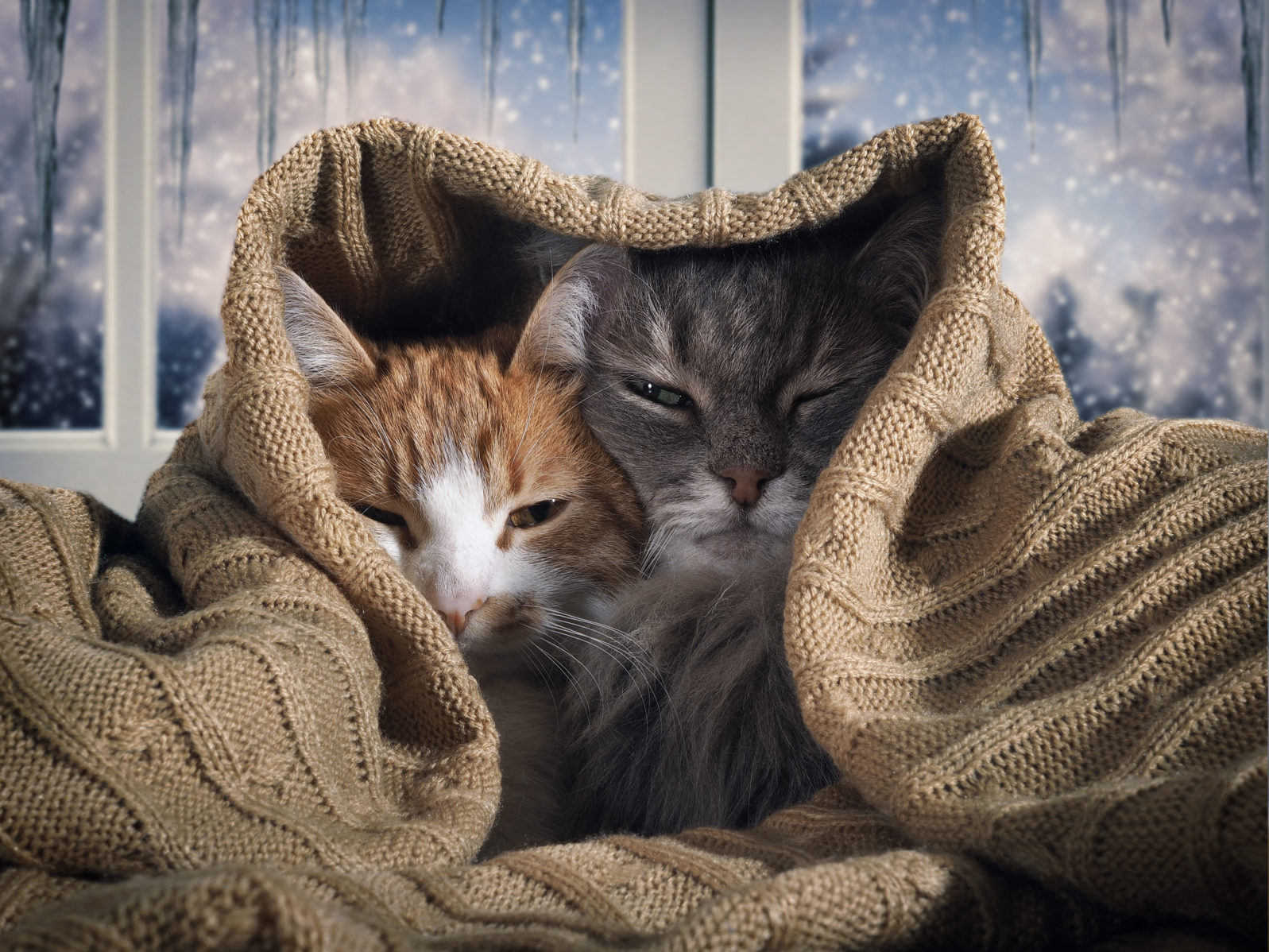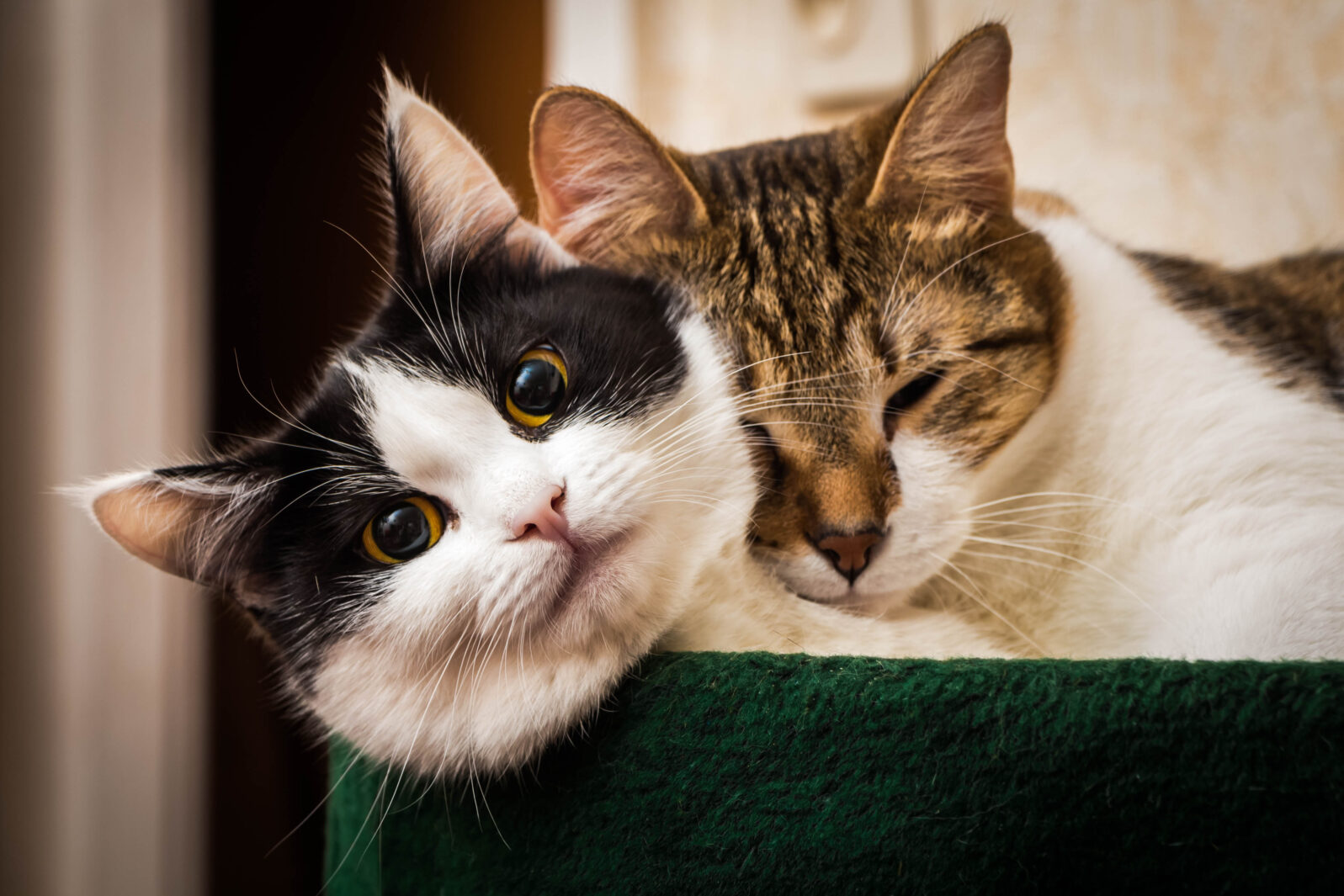Of course cats grieve! But how to research it …?
The challenge is separating the cat’s feelings from those of the human interpreterA recent research paper offering some evidence that cats grieve the deaths of companion cats or household dogs was quickly picked up by media (see NPR and Psychology Today).
The researchers, based in Oakland University in Michigan, are themselves uncertain about what they found in their survey of 412 humans reporting on the behavior of 452 cats who had lost either a dog or a cat housemate.

The cats commonly acted like they knew something was wrong, especially if they had lived peaceably with the deceased animal for a long time. But, significantly, the more grief-stricken the human was, the more grief-stricken the cat was reported — by the human — to be:
Amount of time spent engaging in activities together in a typical day predicted caregiver reports of increases in grief-like behaviors and fearfulness in surviving cats. More positive relationships between the deceased animal and surviving cat predicted decreases in sleeping, eating, and playing. The longer the cat had lived with the deceased animal, the more the caregivers reported increases in attention-seeking following the death. However, higher levels of caregiver attachment also predicted reports of increases in attention seeking behavior, which may reflect anthropomorphism in the projection of caregiver grief onto surviving companion animals. Consistent with this hypothesis, caregivers who experienced greater grief were more likely to report increases in their surviving cats’ sleep, spending time alone and hiding following the death. If caregivers reported avoidant attachment with the deceased cat, they reported greater decreases in grief-like behaviors in surviving cats following the death, suggesting that caregivers without strong, secure attachment binds were less likely to perceive that their surviving animals experienced grief.
Greene, B., & Vonk, J. (2024).“Is Companion Animal LossCat-astrophic?,” Responses of Domestic Cats to the Loss of Another Companion Animal. Applied Animal Behaviour Science. The paper requires a subscription.
In short, a grief-stricken human reporting on cat grief is not an objective observer.
Do cats have enough of a mental life to grieve?
Cats are different from humans in ways that dogs are not. In their natural lifestyle, dogs are pack animals, happy as the lowest-ranking members of a human “pack.” Cats are colony animals— or loners if necessary.
Cats take hunting desperately seriously because they are obligate carnivores. They must eat other animals. But they do not hunt in packs. For one thing, they eat small rodents — a meal for one.
A colony is not a pack, just a communal living space, like an apartment building. Thus, while cats are well adapted to living with humans, they don’t need humans in the intense way that dogs do.
Also, cats are generally stoical, even about their own pain. They are prey animals as well as predators and dare not exhibit weakness. Claims about whether cats do or don’t “care” about humans or other cats should take these factors into account. There is nothing like dependence to accentuate grief and nothing like independence to encourage a more objective look at the loss, even in humans.
Feline mental life shouldn’t be underestimated though. For example, cats do recognize and respond to our voices. They have some idea what we are saying too, provided it is something a cat can understand in principle like “Quit scratching the sofa!”
The importance of abstractions
Feline (or canine) understanding is never about an abstraction like “Pepper died last night.” The cat may understand “Pepper” well enough but “died” and “last night” are abstractions. Even “Good cat!” and “Bad cat!” are abstractions. He only wants to know what you plan to do about what he just did so he can take evasive action if needed.

So what grief means will inevitably be different. Let us say that Salt and Pepper are litter mates who have always lived together amicably, and Salt dies at eight years of age. Pepper may spend several weeks in some kind of shock, continually missing and looking for Salt, who has always formed a large part of his environment. But Pepper cannot know that Salt is dead and eventually, he will just get used to his absence.
A human who is grief-stricken at the loss of Salt is likely to notice that Pepper is grief-stricken too. But a human who is not emotionally affected by Salt’s death may not notice that. Of course, if Salt was a comparatively new arrival in Pepper’s life and Pepper had never liked him, Pepper probably isn’t grief-stricken at all, whether or not the human is.
And that is essentially what the researchers found.
A concrete world
Of course cats can experience grief but — as with any animal — we should take into account what the cat thinks is happening in his world of eternal now where everything is concrete.
At NPR, Joe Hernandez reports,
The researchers said more studies in this area would be necessary before drawing any conclusions. But Vonk, a cat owner herself, said her and Greene’s data suggest that cats may experience emotions akin to grief and sadness in ways that weren’t previously known.
“It does make me think maybe it’s more likely than I thought before that cats do have those feelings,” she said.
Joe Hernandez “Do cats experience grief? New research suggests they might,” NPR, August 8, 2024
Of course they do. The gap between the human mind and the cat mind doesn’t turn on emotions but on abstractions.*
At Psychology Today, Bence Nanay offers,
Another possible explanation is that the cats’ behavior didn’t change as a result of the loss of the other pet but as a result of the grief of the human caregiver. This would explain the correlation between the “grieving” behavior and the strength of the emotional involvement of the human caregiver. And given what we know about how attuned cats (and dogs) are to the emotions of their masters, this would be a plausible explanation.
Bence Nanay, “Do Cats Feel Grief?,” Psychology Today, August 8, 2024
Possibly. But two cats — or a cat and a dog — can have a long-standing emotional relationship based on their interactions, especially if neither is anxious about anything concrete like food or safety. The gulf that separates us from our pets is not one of emotion but of reason and moral responsibility.
*See, for example, Michael Egnor on why dogs don’t speak: “Language is a tool for abstract thinking—a necessary tool for abstraction—and humans are the only animals who think abstractly.”
